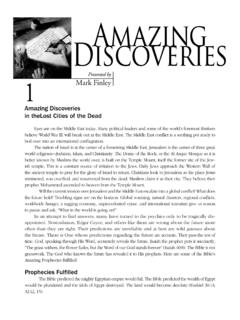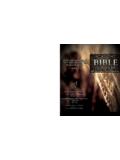Transcription of Lesson 12: God's Big Idea: You! Psalm 139 - Isaiah …
1 Oaks of Righteousness 2006, Mary Jean Young Le sso n 1 2: G od 's " Bi g I d e a" : Y ou ! Psa lm 13 9 I ntr o d uc ti o n Fully known and fully loved. This is the deepest need and desire of the human heart. Why? Because God created us in his image and likeness. And in the Oneness of the Trinity Father, Son, and Holy Spirit each person of the Godhead is fully known and fully loved. Every person that ever existed was created to share in this wonderful love relationship between Father, Son, and Spirit and no other love relationship will fully satisfy this deep need and desire of the human heart. In God, we are fully known and fully loved. Fully known and fully loved is the theme of Psalm 139.
2 We can only imagine how God impressed these truths on David's heart, but we do know David's reaction to these truths! David was "blown away" by the fact that the all-powerful, all-knowing Designer and Creator of the cosmos was intimately acquainted with him, had personally designed him and cared deeply for him. What significance! What belonging! What value! The knowledge of it was too wonderful! David had to express his amazement and thankfulness, which he did when he composed Psalm 139. Now, David's experience becomes our experience! If you attended the January large group meeting for Growing Together Bible Study, you know that Martha Weber taught us from Psalm 139. I wrote this Lesson to dovetail with Martha's teaching, so I'm indebted to her for some of the questions and insights found in it (beginning with the title, that we are God's "big idea").
3 If you did not get hear Martha's teaching, it is available on CD. You won't want to miss it! D i s c uss i o n S tar ter How does it make you feel when someone obviously takes the time to really get to know you? Pr epar ati o n 1. Before you read Psalm 139, ask the Holy Spirit to teach you and guide you into all truth (John 16:13). We have been using the prayer, Holy Spirit, think through me until your ideas become my ideas , or King David's prayer, Open my eyes to see the wonderful truths in your law. 2. Read Psalm 139 slowly and thoughtfully in at least two translations. As you read and reread, mark any words or phrases that are meaningful to you and put a question mark by anything that you don't understand.
4 3. If you had to memorize a verse (or verses) from this Psalm , which one(s) would you choose? Write out the verse(s) below. Ques ti o ns GOD KNOWS WHO I AM Psalm 139:1-6 4. Put into your own words the specific things that God knows about you from Psalm 139:1-5. 5. How does David feel about God's total knowledge of him? 139:6 How do you feel about God's total knowledge of you? Why? 6. Which of the statements in 139:1-5 do you find most comforting? Why? Which one makes you most uncomfortable? Why? Why does it matter that God knows you so intimately? What difference does it make? Why does David make such a big deal over it? What are some advantages of God knowing everything about you?
5 What are some words that would describe God if all you knew about him was found in 139:1-6? 7. What project or activity have you enjoyed doing, planning or making and then, even after your creation was completed, you continued to examine, enjoy, and appreciate it? How does this concept of continuing to enjoy your handiwork or accomplishments, even after they are completed, apply to you and your Creator? What meaning does this give to David's words in 139:1, "O Lord, you have searched (examined, investigated, explored) me .." GOD KNOWS WHERE I AM Psalm 139:7-12 8. What do you think is the purpose of David's questions in 139:7? 9. What three sets of extreme opposites does David use to make his point that God is everywhere.
6 What are some reasons why a person might want to get away from God? How do people try to get away from God? Have you ever tried to get away from God? Why? Even if we know we cannot get away from God, what do we sometimes do to hold God at a distance? 10. How would you expect God to treat the person who tries to get away from him? How does God treat the person who tries to get away from him? 139:10 11. What does 139:11-12 say about God's ability to transform the most hopeless of situations? What dark situation in your life needs to be brought into God's light? Think of a time you felt all alone. Did it help (or would it have helped) to know that God was with you? Why or why not?
7 What are some words that would describe God if all you knew about him was found in 139:7-12? GOD KNOWS WHAT I AM Psalm 139:13-18 12. Why does God know you so well? 139:13 13. According to 139:13-16, when did God first establish a relationship with each of us? What significance does this have for the unborn? 14. What two similar images or word pictures does David use in 139:13 and 15 when he speaks of God creating him? What insight do these images give you about your creation? Why does David thankfully praise God in 138:14? What does this verse tell you about how you should view our own existence? What things about yourself do you have difficulty accepting, even to the point of questioning your Creator?
8 Is there anything in the Psalm that helps you in this dilemma? 15. Read 139:16 in all four translations. What does God know about your future and what impact do you think this has on your ability to make choices? 16. Read 139:17-18 in all four translations. What are two possible meanings for these verses? Regardless of the way you interpret verses 17-18, what is the significance of these verses? How does 139:13-18 make you feel about yourself and your value to God? What are some words that would describe God if all you knew about him was found in 139:13-18? How does David describe the people who choose not to acknowledge the truths presented in this Psalm ? (139:19-22) Why does he have such negative feelings towards them?
9 17. Why is David's prayer in 139:23-24 an appropriate response the wonderful truths of this Psalm ? 18. Since David has already acknowledged that God knows everything about him, what is his purpose in asking God to search him and know his heart? Why does God need to search our hearts instead of us searching our own hearts? If God points out an "offensive way" in you, what will you do about it? R es po ns e: 19. The power of Psalm 139 is not in knowing what it says, but in believing what it says. Look back over this Psalm put into your own words five facts about God and his relationship to you. For example: No matter where I am, God is always with me; or God personally put me together in the my mother's womb.
10 Choose facts that are meaningful for you! 1 - 2 - 3 - 4 - 5 - Do you really believe the facts ( God's Truth) that you listed above? At GTBS, we have defined faith as choosing to believe God's Word (promises) regardless of our feelings or circumstances. In other words, if my circumstances and feelings contradict what God says is true, I choose, by an act of my will, to believe and put my trust in God's truth instead of what my feelings or circumstances may be telling me. The world says, "Seeing is believing". God says, "Believe me and than you'll see". If we want to experience God's truth and reap its benefits in our lives, we must first believe it and put our trust in it. Then, and only then, will we experience what God has for us.
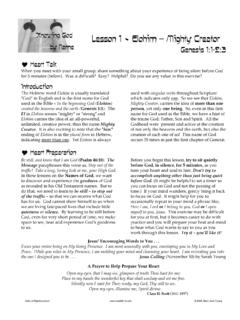
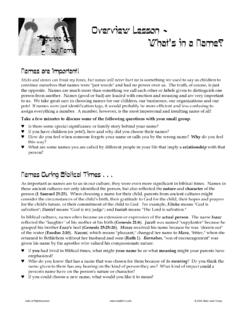
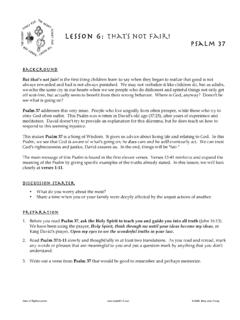
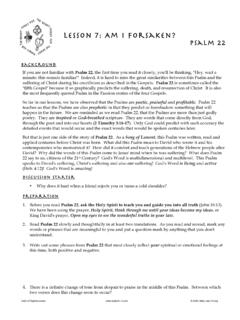
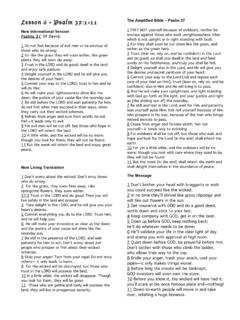

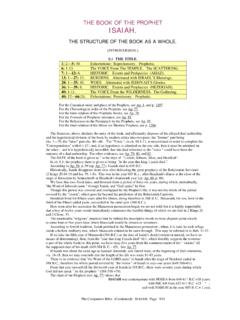

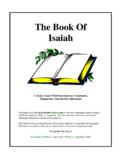

![[A Work in Progress] - Bible Professor](/cache/preview/e/e/3/3/2/d/c/f/thumb-ee332dcf388452f3fc2160af1dec50c3.jpg)
